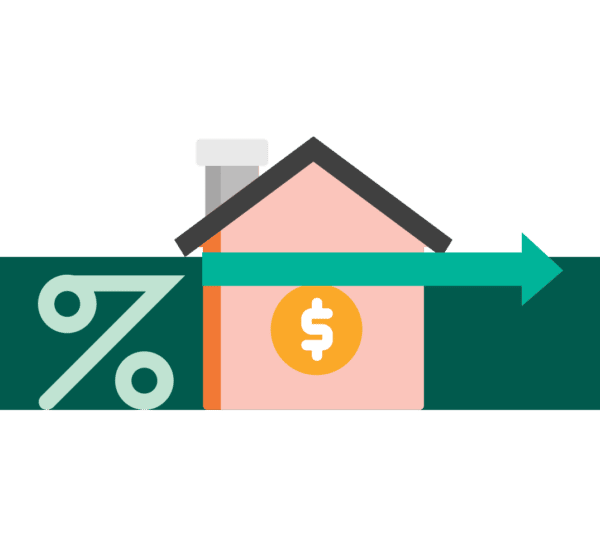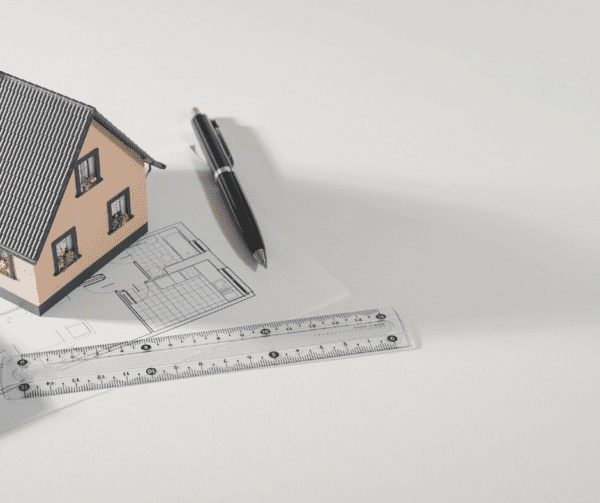What Determines Your Home Equity Loan’s Interest Rate
Several factors affect home equity loan interest rates. Most lenders base their annual percentage rate on the prime rate set by the Federal Reserve, to which they add their own markup or margin. In deciding on a rate to offer you, they will also consider your specific situation. That can include your:
- Debt-to-income ratio: Most lenders want to see a DTI of less than 43%. This shows you’re not overextended.
- : Aim for a credit score of 700 or above. This demonstrates a history of responsible payments and low . The higher your credit score, the better the rate you’ll likely be offered.
- Loan-to-value ratio: This shows how much you owe on your primary mortgage relative to how much your home is worth. If you have more than one loan, lenders will look at your combined LTV. You can calculate your LTV by dividing your current loan balance by your home’s appraised value.
How Soon Can I Tap The Equity I’ve Built
Generally, lenders require that homeowners have at least 20 percent equity in their homes before they can withdraw money through a home equity loan product. This means you need a loan-to-value ratio, or LTV, of 80 percent. A professional property appraisal is done to verify your homes current market value. A lender then divides your outstanding mortgage balance by the appraised value to get a percentage for your LTV ratio.
Home values and the term of your loan play a role in how quickly you gain equity. When home values rise, as they have in recent years, you can build equity much faster. If the market takes a dive, as it did during the Great Recession, you could lose equity and become underwater in your mortgage owing more than your home is worth.
Home Equity Loans In Bc Canada How Do They Work
Home loans in BC, Canada usually create asecond mortgage charge against the borrowers house and reduce the actual homes equity.
Most highHELOCs ask for an outstanding credit balance and a reliable proof of income. Bad creditloans on the other hand, are secured by a lower LTV and are a lot easier to qualify for.
A home equity loan is usually, but not always, for a shorter term than a 1st Mortgage.
You May Like: Minimum Credit Score Home Loan
Home Equity Rates Are On The Rise
The Fed on Wednesday announced it will raise its benchmark short-term interest rate the federal funds rate by 75 basis points as part of its ongoing bid to rein in persistently high inflation. Prices were 8.3% higher in August than they were a year earlier, according to the Bureau of Labor Statistics, which was higher than expected.
A higher federal funds rate will mean higher interest rates for all types of loans, and it will have a particularly direct impact on HELOCs and other products with variable rates that move in concert with the central banks changes.
Any way you cut it, its not going to be fun to have a higher payment every month on the same amount of money, Isabel Barrow, director of financial planning at Edelman Financial Engines, told us.
Shop around with different lenders and find a payment you can afford. HELOC rates in particular will be at the mercy of how much more the Fed ends up needing to raise interest rates before inflation has been tamed, says Greg McBride, CFA, chief financial analyst at Bankrate, which like NextAdvisor is owned by Red Ventures.
Pros Of A Home Equity Loan

- Fixed-rate payments: Your monthly payment will never change even if interest rates rise.
- One lump sum of cash: You receive the entire loan upfront in one disbursement.
- Low interest rates: It has a lower interest rate than other types of personal loans or credit cards.
- Tax deductible interest: If you use it for home renovations, you can deduct the interest from your taxes.
Don’t Miss: Interest Rate On Student Loans
More Mortgage Tools And Resources
You can use CNET’s mortgage calculator to help you determine how much house you can afford. The CNET mortgage calculator factors in variables such as the size of your down payment, home price and interest rate to help you understand how much of a difference even a slight increase in rates can make in the amount of interest you’ll pay over the lifetime of your loan.
Getting A Home Equity Loan With Bad Credit
If you have poor credit, you may have a harder time getting approved for a loan, but it is still possible. If you’re interested in applying for a bad-credit home equity loan, the first step is to shop around with a few lenders. Since each lender has its own requirements, it’s possible one lender will be more accepting of a poorer credit score and offer better rates than a similar lender.
Generally, you’ll have to meet the following criteria to qualify for a home equity loan:
- At least 15 percent to 20 percent equity in your home
- A minimum credit score of 620
- On-time bill payment history
- Stable employment or income history
If you don’t meet the requirements, you may want to consider getting a co-signer to increase your chances of approval.
Recommended Reading: What Is The Best Interest Rate For Personal Loan
Current Heloc Rates And Trends
Right now, the average interest rate for a HELOC is 7.12%, according to Bankrate, which is owned by the same parent company as CNET. Anything below the average rate is typically considered a good rate for HELOCs.
Interest rates for HELOCs are variable and largely determined by the benchmark interest rate, which is set by the Federal Reserve. So far this year, the Fed has raised the benchmark interest rate five times and has signaled it will continue raising rates throughout 2022. Interest rates for HELOCs tend to be lower than mortgage rates and other home equity loan rates, which is one of the benefits. They also usually have introductory periods during which they offer an even lower rate for a certain amount of time.
Home Equity Loan Rates
Rates for home equity loans in BC may vary due to a variety of factors location, loan-to-value, and 1st or 2nd position being some of the major ones.
When determining a homes loan rates, lenders will also look at the use of funds and the clients personal situation to determine the best rates to be offered.
So why not give us a call! We can assess your situation right over the phone and give you an idea of what you may qualify for.
Don’t Miss: How Can I Loan Money Online
What Are The Best Ways To Use Home Equity
It can be a good idea to use your home equity for major life expenses that enhance your overall financial well-being. Some popular uses for home equity loans include:
A home equity loan makes more sense for a large, upfront expense because its paid out in a lump sum. If you have smaller expenses that will be spread out over several years, such as ongoing home renovation projects or college tuition payments, a HELOC might be a better option.
Keep in mind that just because you can use your equity doesnt mean you should. Leveraging your home to pay for a wedding, for example, might put your finances and home at risk down the line.
When It Comes To Home Equity Line Of Credit Vs Personal Loan Securing Consolidated Debt With Collateral Can Be A Risky Proposition
Using a home equity loan to consolidate credit card debt can be extremely helpful. With the right credit score, you can qualify for a loan at a low interest rate. This allows you to pay back what you owe in a more efficient way. It minimizes the total cost of debt elimination and often means that you pay less each month, too.
However, although loans can be useful for consolidating debt, not all loans are equal for this purpose. The information below helps you understand the key difference between consolidating with these two types of loans. If you have questions or need to discuss your best options for debt relief with a certified professional, we can help. Call Consolidated Credit at to schedule a consultation with a credit counsellor at no charge. You can also complete our online application.
Read Also: How To Assume An Fha Loan
How Is Getting A Heloc Different From Refinancing Your Mortgage
Refinancing your mortgage is very different from obtaining a HELOC. Here are some of the main differences:
- If you refinance, you can borrow a lump sum that typically has a lower rate than you could get on a HELOC. Unlike a HELOC, your monthly fee will include payments towards both the principal and the interest with a HELOC, you only have to pay towards the interest. This can make a big difference in your monthly payments.
- A HELOC will always have a variable rate , while the mortgage you obtain upon refinancing can be either variable or fixed-rate.
- Refinancing lets you borrow more as part of your new mortgage, which gives you the cash up front. A HELOC, on the other hand, is a mechanism that allows you to access the cash at a later date.
- Mortgages frequently include pre-payment limitations and penalties, which vary from lender to lender, and product to product. In general, you will not be able to pay off the mortgage early or make lump sum payments without any penalty. In the case of a HELOC, you can pay off as much or as little of the principal as you want, when you want.
Best Home Equity Loans Of 2022

Edgar J. NievesTaína CuevasEdgar J. Nieves33 min read
| Best for Quick Approvals | Compare Rate Options in One Place | Best Fixed-Rate HELOC | |||
|
100% loan application process and quick approval times |
Offers competitive low rates and zero loan-related fees |
Funding in as few as 14 days |
Offers three repayment options: interest-only, fixed and variable-rate. |
Low introductory rates for six months. |
Lets you borrow up to $1 million of your home equity. |
| Loan Amount | |||||
|
4.24% – 12.25% |
5.99% – 12.99% |
||||
|
5, 10, 15 and 30 years |
10, 15, 20 and 30 years |
15, 20, and 30 years |
5, 10, 15 and 20 years |
5 – 15 years |
100% loan application process and quick approval times
4.24% – 12.25%
5, 10, 15 and 30 years
Offers competitive low rates and zero loan-related fees
10, 15, 20 and 30 years
Funding in as few as 14 days
15, 20, and 30 years
Offers three repayment options: interest-only, fixed and variable-rate.
5, 10, 15 and 20 years
Low introductory rates for six months.
Lets you borrow up to $1 million of your home equity.
Home equity loans are a popular way to get money for home improvements, education expenses or consolidate debt. This type of loan typically offers homeowners lower interest rates than most credit cards and can be repaid in fixed monthly payments.
Read on to see which banks are offering the best home equity loan options and some great ways to tap into your home equity.
You May Like: Can I Refinance My Conventional Loan To An Fha Loan
How Do I Pay Back A Home Equity Line Of Credit
When you borrow from a home equity line of credit, there is no payback schedule. You pay back the principal borrowed at your convenience. At the minimum, you only need to make monthly interest payments against the outstanding line of credit balance.
As you pay down your line of credit balance, the interest you are charged every month will adjust down. If you have a zero balance, then you won’t have to pay any interest charges.
Some lenders may charge a fixed monthly fee regardless of the balance on a home equity line of credit. Be sure to go over any potential fees with your lender when you’re opening up a HELOC.
Home Equity Borrowing Limits
Most banks and lenders do not allow you to borrow 100% of the value of your home. Your combined loans against your home, including mortgages and home equity loans, typically cant exceed 80% to 90% of the value of your home. This is known as your Loan-to-Value ratio .
To determine your current home value, banks will want a recent appraisal. You can then borrow a percentage of that market value. If your home appraises for $200,000 and you owe $140,000, the equity in your home is currently worth $60,000.
You cant borrow the full $60,000, though. If youre allowed to borrow up to 90% of your homes value, your total combined loan balances cant exceed $180,000 . Since you already owe $140,000, you could only borrow another $40,000.
Lenders may also have maximum or minimum loan balances for their home equity loans, which could limit the amount youre allowed to borrow as well.
Also Check: What Is The Minimum Jumbo Loan Amount
Costs Of A Home Equity Loan
Depending on the lender, borrowers may pay various fees either at closing or throughout the life of the loan. These add to your overall costs, so understand what youll pay before signing for a home equity loan. Some common costs include:
- Origination fee to set up the loan
- Late fees for a delayed monthly payment
- Prepayment penalty for paying the loan off before the term ends
Additionally, you may have to pay for title insurance, property insurance, flood insurance or certain taxes depending on the lender, the homes location, your state laws or other factors.
How Is My Home Equity Loan Amount Calculated
If youre a numbers person, here are the steps youd take to calculate the home equity loan amount with a maximum 85% LTV ratio on a $400,000 home with a $300,000 mortgage balance.
Read Also: What Is The Minimum Credit Score For Usda Loan
Fixed Vs Variable Rates: Which Is Better
Theres no one right answer to whether you should opt for a fixed or variable rate home equity loan.
- Variable-rate loans are loans with the interest rate tied to a financial index. The rate usually starts below what a fixed-rate loan charges, but could go up or down over time. As the rate changes, your interest payments will change.
- Fixed-rate loans have the same rate over the life of the loan. While this may be higher than the starting rate on variable rate options, you dont have to worry about it increasing over time. These loans provide stability and certainty as youll know the required monthly payments and other costs upfront.
If you think interest rates could go down in the future, you may opt for a variable rate loanbut you run the risk of your rate going up and payments potentially becoming unaffordable. Variable rate loans could also be a good option if you plan to sell your home soon after borrowing as you could benefit from the introductory low rate and sell before rates go up. However, if you arent able to sell the home, you could end up with unaffordable payments.
If you want certainty and to know your costs up front, a fixed rate loan is a safer option.
Cons Of A Home Equity Loan
- Using your home as collateral: If you fail to make your payments or default on your loan, your lender can foreclose and take ownership of your house.
- Can take longer to receive the funds: It can take more time to receive a home equity loan than a personal loan, for example.
- Closing costs are expensive: Closing costs can range anywhere from 2% to 5% of the loan.
- Your home’s value could decrease after receiving your loan: Although home values are not expected to decrease significantly any time soon, if your home’s value were to drop below your home equity loan amount, you would have what is known as negative equity. Negative equity means you owe more than your home is worth. So, if you were to sell your home, you likely would not receive enough money from a seller to pay off your loan balance.
Don’t Miss: Can I Pay My Student Loan Early
What Are The Costs Of Getting A Heloc
When you get a home equity line of credit, there are a few upfront costs that you should be aware of, such as:
- Home appraisal fees
- Legal fees to register the collateral claim on your home
- Legal fees toward searching for other liens on your home
- Other administrative fees your lender may charge to set up your line of credit.
When you apply for a home equity line of credit, be sure to check with your lender for setup costs and ongoing expenses that could be incurred.
What Are Current Home Equity Interest Rates

Home equity interest rates vary widely by lender and the type of product. Generally speaking, home equity lines of credit have lower starting interest rates than home equity loans, although the rates are variable. Home equity loans have fixed interest rates, which means the rate you receive will be the rate you pay for the entirety of the loan term.
As of Sep. 7, 2022, the current average home equity loan interest rate is 6.98 percent. The current average HELOC interest rate is 6.51 percent.
| LOAN TYPE | |
|---|---|
| 6.51% | 5.27%-9.14%% |
You May Like: Does Pre Approval Mean You Will Get The Loan
